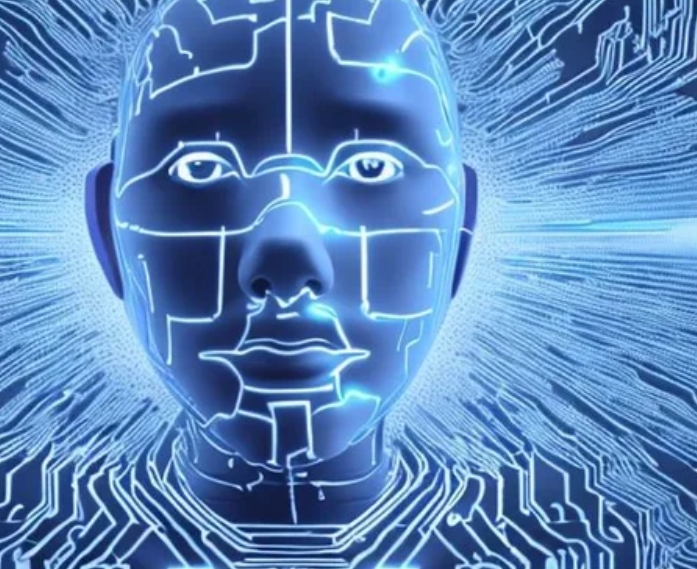The Ethics of AI: Balancing Innovation with Responsibility
Artificial intelligence (AI) is at the forefront of technological innovation, driving advancements across various industries and transforming the way we live and work. However, as AI continues to evolve and integrate into our daily lives, it raises important ethical questions about its impact on society. Balancing innovation with responsibility is crucial to ensure that AI benefits humanity while minimizing potential harm.
The Promise of AI
AI has the potential to revolutionize many aspects of our world. From healthcare and education to transportation and entertainment, AI-driven technologies can enhance efficiency, improve decision-making, and unlock new possibilities. For instance, AI algorithms can analyze vast amounts of medical data to identify patterns and provide personalized treatment recommendations. In education, AI can offer tailored learning experiences, helping students achieve their full potential. The promise of AI lies in its ability to augment human capabilities and address complex challenges.
Ethical Concerns
Despite its potential benefits, AI also poses significant ethical challenges. One major concern is bias in AI algorithms. Since AI systems learn from data, they can inadvertently perpetuate existing biases present in the training data. This can lead to unfair outcomes in areas such as hiring, lending, and law enforcement. Ensuring that AI systems are fair and unbiased requires careful consideration of the data used and ongoing monitoring to detect and mitigate bias.
Privacy is another critical ethical issue. AI technologies often rely on vast amounts of personal data to function effectively. The collection, storage, and use of this data raise concerns about individuals' privacy and data security. Striking a balance between leveraging data for innovation and protecting individuals' privacy is essential to maintain public trust in AI.
Accountability and Transparency
Accountability and transparency are key principles in the ethical deployment of AI. As AI systems become more complex and autonomous, it is crucial to establish clear lines of accountability for their actions. When AI systems make decisions that impact people's lives, it is important to understand how those decisions were made and who is responsible for them. Ensuring transparency in AI algorithms and decision-making processes helps build trust and enables scrutiny to prevent misuse.
Social Impact
The widespread adoption of AI has the potential to disrupt labor markets and exacerbate social inequalities. Automation driven by AI can lead to job displacement and economic shifts, disproportionately affecting certain sectors and communities. Addressing the social impact of AI requires proactive measures, such as reskilling programs and policies that promote inclusive economic growth. By considering the broader societal implications, we can ensure that AI benefits all members of society.
The Role of Regulation
Regulation plays a crucial role in guiding the ethical development and deployment of AI. Governments and regulatory bodies must establish frameworks that promote responsible AI innovation while safeguarding against potential risks. Regulations can set standards for data privacy, algorithmic transparency, and accountability, ensuring that AI technologies align with societal values and ethical principles. Collaboration between policymakers, industry leaders, and ethicists is essential to create effective and adaptive regulatory approaches.
A Collaborative Effort
Balancing innovation with responsibility in AI is a collaborative effort that involves various stakeholders. Tech companies must prioritize ethical considerations in their AI development processes and invest in diverse and inclusive teams. Researchers and academics can contribute by studying the ethical implications of AI and developing methodologies to address ethical challenges. Public awareness and engagement are also vital to ensure that societal values are reflected in AI technologies.
The ethics of AI is a complex and evolving field that requires ongoing dialogue and collaboration. By prioritizing ethical considerations and fostering a culture of responsibility, we can harness the transformative power of AI while safeguarding against potential harms. Striking the right balance between innovation and responsibility is essential to build a future where AI serves the common good and enhances the well-being of humanity.
american-boffin.com
bfbchamp.com
democraticcoma.com
tigrepelvar.com
charpoles.com
derbywheelblazers.com
fansfocus.net
guildnow.com
hediyeteyze.com
isprimecdn.com
kiira-korpi.net
manutd24.com
mediumtylerhenry.com
mishanghai.org
savethreestrikes.com
smilesbydavis.com
10puntos.net
band-shirt.com
icelandtrails.com
paulmarioday.com
thefunnynanny.com
Dave Tries Ballet
Buon Grande
Criacao Sites
Perry Perkins Books
Writing Essay in AU
Ka Soku
Blood is Blood Movie
Eleanor Writes Things
The Happy Prince Beirut
Town of Witless Bay
Online Igrovoi Club
Trigeminal Neuralgia - Ronald Brisman MD
Chocolate City Burlesque
Advanced Electric Scooters
W Tougei
Breadboard Maniac
Takasu App
